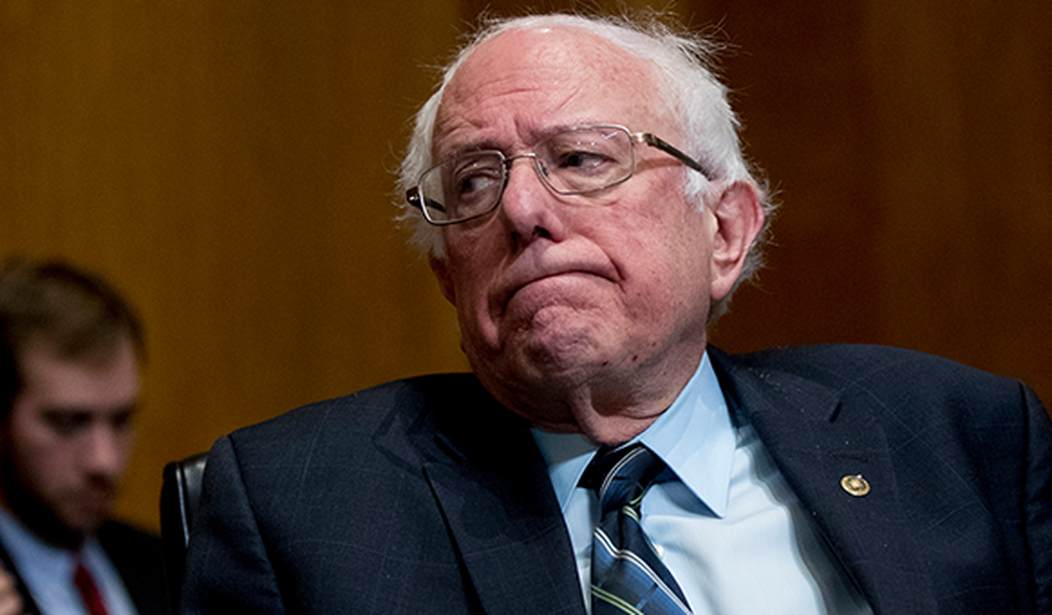Editor's note: This column was authored by John Kristof .
Democratic Representative Pramila Jayapal and 107 other progressives introduced a highly-anticipated “Medicare for All” bill on February 26. With 107 cosponsors, this proposal is a concrete plan to overhaul the American healthcare system and provide single-payer universal coverage for all citizens.
And left-wing Democrats certainly hope this proposal will prove universal healthcare can be a realistic policy, and not just a progressive litmus test. So, Medicare for All isn’t just Bernie Sanders’ radical healthcare solution anymore. Now it’s a staple in several Democratic presidential candidates’ platforms, especially after a late 2018 survey suggested 70 percent of Americans supported expanding Medicare to cover all Americans.
But if these Democrats dive a little deeper into the polls, they’ll find most Americans don’t want Rep. Jayapal’s healthcare plan. The system Americans want more closely resembles the really successful European healthcare systems, which still heavily rely on private healthcare providers.
A January survey from the Kaiser Family Foundation found public opinion to be more complicated than politicians indicate. Three out of five people have a favorable view of the term “Medicare for All,” and 56 percent support a single-payer healthcare system in which all Americans get their insurance from a single government plan.
But when Americans consider the specifics of Medicare for All, they’re much less excited. If Medicare for All involves eliminating private health insurance, support for it plummets to 37 percent. They are equally unsupportive if Medicare for All requires most Americans pay higher taxes. And if Medicare for All were to result in treatment delays and longer wait times for medical care—as it likely would—only 26 percent of Americans would still be in favor.
Recommended
The Jayapal and Sanders healthcare bills pose all these concerns. Both would expand Medicare to a government-funded, single-payer healthcare program that would never charge copays, premiums, or deductibles. Private insurance would be essentially eradicated.
Disguising healthcare prices behind public funding does nothing to reduce the price of healthcare, instead trading one crisis for another. When people don’t personally face any of the costs to something, demand for that thing skyrockets, usually creating a shortage. In a shortage, a resource can’t always be allocated to the people who need it most. All people can be promised is a spot on a waitlist, a situation prone to corruption.
Consider Canada, which essentially eliminated prices from its healthcare and suffers from some of the longest healthcare wait times in the developed world. Long wait times are classified as a “serious health policy issue” because extended wait times correlate with higher mortality rates.
Wisely, many more Americans prefer a Medicare for All plan if it’s an option that runs alongside private insurance. According to the Kaiser poll, 74 percent of Americans favor expanding Medicare if people may continue to purchase private health insurance. In the various European countries with universal healthcare coverage, collaboration between public and private providers has been the only proven way to expand coverage while keeping healthcare truly accessible.
For example, private for-profit healthcare providers offer substitute coverage in Germany, supplement public insurance in France and Switzerland, and play both substitute and complementary roles in Australia and Sweden. Citizens are responsible for copayments in Switzerland, the Netherlands, Germany, and Australia. These countries consistently rank among the best in the world in healthcare provision, outshining Bernie Sanders’ beloved Canada in most relevant categories.
Furthermore, Democrats appear unprepared to discuss financing their poorly-designed Medicare for All plan. Rep. Jayapal’s bill contains no provisions to raise revenue or redirect spending for Medicare expansion. Rep. Jayapal told reporters a financing bill would be released at a later date. To help cover the costs, she suggested higher taxes on the wealthy or requiring employer contributions.
Progressive Democrats have a lot of work to do on their payment plan. The Sanders Medicare bill consistently has been estimated to cost well over $3 trillion per year, and a multi-millionaire tax like that proposed by Rep. Alexandria Ocasio-Cortez would raise revenues by less than 3 percent of that amount. To cover a Jayapal/Sanders single-payer Medicare plan, the government would have to more than double its tax revenue. Notably, 77 percent of surveyed Americans believe a Medicare for All system would require them to pay higher taxes, indicating voters may have more realistic expectations than some Democrats.
Americans clearly are ready for more healthcare reform, but they shouldn’t fall for the trap of treating coverage as the only relevant measuring stick. Covered patients need to be seen quickly and treated effectively so they can continue with their lives, freeing providers to care for other patients. Without private insurance and price mechanisms, universal healthcare systems will still fail to provide better access to quality healthcare. If Democrats wish to push for universal healthcare, they’re going to have to reject Jayapal and Sanders’ bad plans and come up with something that actually works.
John Kristof is a research fellow at the Sagamore Institute and a contributor for Young Voices, where he frequently rights on fiscal and other economic policy issues. Follow him on Twitter.

























Join the conversation as a VIP Member